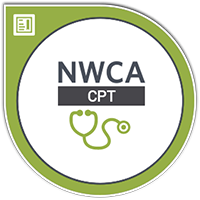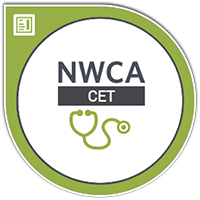Phlebotomy Technician with EKG
Online Certification Course from North Shore Community College
Program Description
The phlebotomist is a vital member of the clinical laboratory team, whose main function is to obtain patient’s blood specimens by venipuncture and micro-collection for testing purposes. Phlebotomists are employed throughout the healthcare system including in hospitals, neighborhood health centers, medical group practices, HMO’s, public health facilities, veteran hospitals, insurance carriers, and in other healthcare settings.
This program prepares learners to collect blood specimens from clients for the purpose of laboratory analysis. Learners will become familiar with all aspects of blood collection and will review the skills needed to perform venipunctures safely.Combined with EKG, the course further coverstopics and processes critical to conducting and interpreting electrocardiograms (EKGs). To begin, learners will review the anatomy and physiology of the heart. From there, learners will go on to explore the technology used such as the EKG machine. Next, participants will learn how to interpret a rhythm strip. And finally, learners will discover the details of a myocardial infarction. Successful completion of this program will help prepare learners to perform the role of EKG technician.
Program Objectives
After completing this program, learners will be able to:
- Explain the steps in selected specimen collection procedures performed by the phlebotomy technician
- Explain the safety procedures in the healthcare setting and specifically in performing specimen collection procedures
- Identify specific supplies and equipment used in selected specimen collection procedures
- Explain precautions and guidelines when collecting specimens in special populations such as pediatrics and geriatrics
- Define quality of care and explain the impact on patient medical care when quality and safety are compromised in phlebotomy procedures
- Describe the anatomy, physiology, pathophysiology, and medical terminology associated with phlebotomy
- Describe the requirements of the successful phlebotomy career including desired character traits, training and education, roles and responsibilities
- Explain how phlebotomists communicate with others in the healthcare setting verbally, nonverbally, within the health record, and using computer systems
- Identify common legal issues, ethical issues, and regulatory issues commonly impacting the phlebotomist
- Apply the basic electrophysiologic principles of cardiac conduction to the anatomy and physiology of the body
- Identify proper placement of leads to ensure an accurate and consistent EKG reading
- Evaluate various EKG rhythm strips following established normal criteria for each of the wave forms and intervals
- Analyze a variety of EKG rhythm strips, identifying rate, rhythm and intervals
- Analyze a variety of EKG rhythm strips for common dysrhythmias
- Apply an understanding of the technical aspects of the EKG machine to the correct use of the machine and interpretation of artifacts
- Describe the functions, associated terminology, types, and rhythm strips of pacemakers
- Describe diagnostic electrocardiography in terms of goals, types, procedures, indications, and contraindications
- Explain how to interpret a 12-lead EKG strip
- Explain myocardial infarction in terms of physiology, symptoms, and EKG interpretation
- Describe common cardiac medications
Certification Opportunities
After completing this program, learners will have the opportunity to take the leading national/industry-recognized certification exam(s) essential to entry-level employment in this fast-growing field.
 |
National Workforce Career Association (NWCA) Certified Phlebotomy Technician (CPT) |
 |
National Workforce Career Association (NWCA) Certified EKG Technician (CEKG) |
Optional Volunteer Externship Opportunity
Learners who complete this program are eligible to participate in an optional volunteer externship opportunity with a local company/agency/organization whose work aligns with this area of study in order to gain valuable hands-on experience. As learners progress through their eLearning program, an Externship Coordinator will reach out to coordinate placement.
Note: Additional documentation including health records, immunizations, drug-screening, criminal background checks, etc. may be required by the externship facility.

Requirements
- High School Diploma or GED
Program Details
- Video Lesson Presentations
- Mobile-Ready
- National Certification Opportunity
- All Textbooks & Materials
- Laptops Available
- 24/7 Learner Support
- Certificate of Completion
- Clinical Externship Opportunity